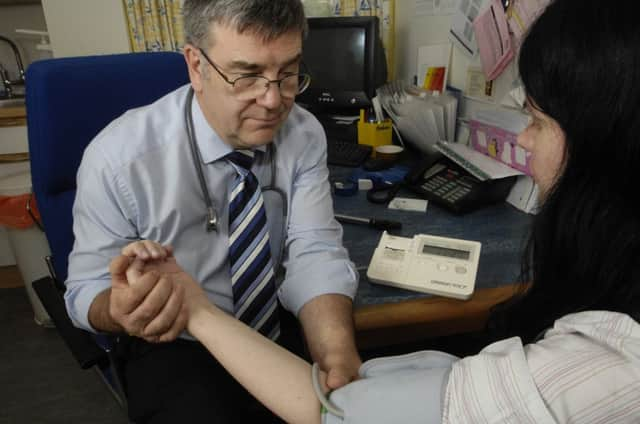GP surgeries hit as benefit cuts bite


Changes to the way benefits for people unable to work due to illness are assessed and other reforms, such as the bedroom tax, were blamed by GPs for an increase in patients seeing them with non-medical problems.
A survey of more than 1,000 GPs by the British Medical Journal (BMJ) found that the majority (94 per cent) believed their workload had increased in the past year because of their patients’ financial hardship under new rules for receiving benefits.
Advertisement
Hide AdAdvertisement
Hide AdDoctors in Scotland said many were struggling to cope with the extra demands placed on them by the benefits changes.
But the Westminster government rejected the findings of the survey, saying they were “speculative”.
The BMJ investigation found that two-thirds of GPs believed patients’ health was being harmed by cuts to their benefits, while many felt their professional opinion was regularly disregarded by those assessing people’s ability to work.
The journal also found that employment advisers and welfare rights officers were “an increasingly vital part of general practice during the austerity period”, with doctors referring patients to these services as they would refer others for hospital appointments.
A raft of reforms to the welfare system have been introduced over the past few years as the UK government attempts to reduce the nation’s deficit.
The BMJ said the findings of its survey “suggest that people receiving welfare support due to illness or disability are struggling to cope with cuts to their benefits and are turning to their GP practices for help”.
The research found that most doctors said they are seeing an increase in patients with non-medical problems, such as debt, unemployment and housing issues, and many believed this was affecting their patients’ health, particularly those with mental health problems.
A Westminster government spokesman said: “The claims made in this research are just speculative and provide no robust evidence.
Advertisement
Hide AdAdvertisement
Hide Ad“Our reforms are improving the lives of some of the poorest families in our communities by promoting work and helping people to lift themselves out of poverty.
“There are some misleading stories about our reforms, but the truth is that we spend £94 billion a year on working age benefits and the welfare system supports millions of people.”
A Scottish Government spokesman said: “This report is yet more evidence of the harmful effects of Westminster’s welfare cuts on Scotland.
“The Scottish Government is acutely aware of the serious issues raised by GPs and ministers have repeatedly raised concerns with the Department of Work and Pensions.
“However, what is of even greater concern is that 70 per cent of the welfare cuts are still to come – Scotland will see its welfare budget reduced by over £6bn by 2015-16.”